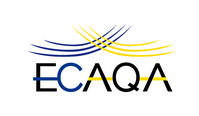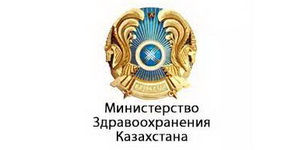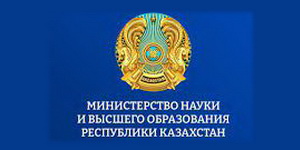Публикации (en)
22 June 2022 the Board of ENQA took the decision to grant the ECAQA full membership of ENQA for five years.
The Board of ENQA concluded that ECAQA is in compliance with the Standards and Guidelines for Quality Assurance in the European Higher Education Area (ESG 2015) and thus fulfils the membership criteria according to article 6, paragraph 1 of ENQA‘s rules of procedure.
Board letter_membership approved_ECAQA https://www.enqa.eu/wp-content/uploads/Board-letter-membership-approved_ECAQA.pdf
The Eurasian Сentre for Accreditation and Quality Assurance in Higher Education and Health Care (ECAQA) underwent an external review coordinated by ENQA. The review evaluated whether and how the agency meets the expectations of the European Standards and Guidelines for Quality Assurance in the EHEA. An external review conducted between October 2020 and March 2022. The main review took place in June 2021.
The 2021 external review of ECAQA was conducted in line with the process described in the Guidelines for ENQA Agency Reviews.
The panel for the external review of ECAQA was appointed by ENQA and composed of the following members:
- Patrick Van den Bosch (Chair), Policy Advisor for Quality Assurance, Flemish Higher Education Council, Belgium (ENQA nominee);
- Ewa Kolanowska (Secretary), independent higher education consultant, Poland (ENQA nominee);
- Danutė Rasimavičienė, Lecturer and Staff Development Coordinator, Vilnius University Business School, Lithuania, Academic (EURASHE nominee);
- Simona Zamfir, PhD medical student at the Grigore T. Popa University of Medicine and Pharmacy Iasi, Romania (ESU nominee, member of the European Students’ Union Quality Assurance Student Experts Pool).
The review was coordinated by Anna Gover, a Senior Project Manager at ENQA, until the end of November 2021, and subsequently by Goran Dakovic, the Reviews Manager at ENQA.
https://www.enqa.eu/review-database/external-review-of-ecaqa/
Meeting with the director of the Agency for Supervision in the Field of Education and Science under the President of the Republic of Tajikistan and heads of medical educational organizations of the Republic of Tajikistan
On May 20-22, 2022, ECAQA Director General S.S. Sarsenbayeva, MD, DMedSc, Professor, and ECAQA Adviser F.N. Nurmanbetova, MD, DMedSc, Senior Adviser and Certified Assessor of the World Federation...
The General Assembly of the European Association for Quality Assurance in Higher Education (ENQA) was held on April 28
The General Assembly of the European Association for Quality Assurance in Higher Education (ENQA) was held on April 28, 2022 and was attended by Director General Sarsenbayeva Saule.
This high forum joined representatives of more than 100 full and affiliated members of ENQA.ECA has been an affiliated member since 2017.
In 2021, an external international evaluation of ECA for admission to full membership in ENQA was conducted.
The agenda of the General Assembly is detailed on the website https://www.enqa.eu/events/enqa-online-general-assembly-2022/
Agreement between ECAQA, SISQE, Uzbekistan Ministry of Health and the official letter from the State Inspection for Supervision of Quality in Education under Cabinet of Ministries to the Republic of Uzbekistan (SISQE)

Agreement was signed between the State Inspectorate Supervision for Educational Quality (SISQE) under the Cabinet of Ministers of the Republic of Uzbekistan, The Ministry of Health of the Republic of Uzbekistan and the "Eurasian Center for Accreditation and Quality Assurance in Education and Health Care".
This is an official confirmation from the State Inspection for Supervision of Quality in Education of Cabinet of the Republic of Uzbekistan (SISQE) that authorized the ECAQA to carry out the programmatic accreditation in medical and healthcare professions education at the Higher Education Institutions of the Republic of Uzbekistan.













